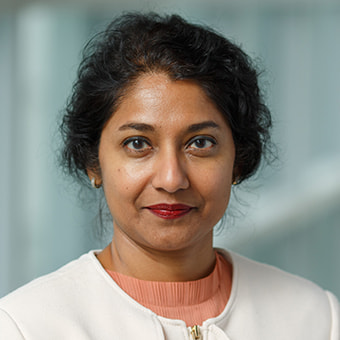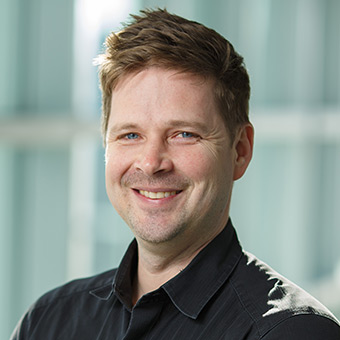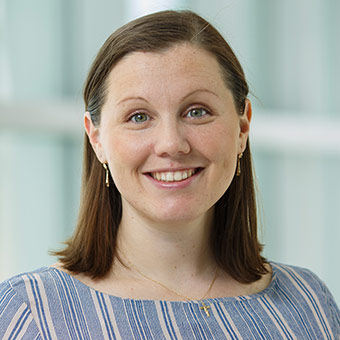Meet the Staff

Vinodini Murugesan is the executive director of English Language Programs at Brandeis University and serves the department as its academic specialist. She holds a Bachelor of Education, with honors, in teaching English as a second language from Exeter University in the United Kingdom, an MA in English literature from the University of Malaya, and a joint MA in English literature and women's and gender studies from Brandeis University. She is currently completing a PhD dissertation in English at Brandeis.
Murugesan organizes and oversees the office of English Language Programs, including the Gateway Scholars Program. She designed the academic model for the Gateway program and created the accessory programs that support it. She also supervises the talented group of staff, instructors and academic tutors that work with English Language Programs.
Murugesan has extensive international experience in the field of education as academic theory, government policy and commercial enterprise. She worked for the Ministry of Education in Malaysia as a teacher educator to research, plan and conduct teacher education programs. She has designed various teacher education programs based on language acquisition theory as well as the practical reality of language-learner situations in various places. She has also worked with international publishers as an education specialist, writer/editor and marketing consultant, and has co-authored several ELT resource books.

Scott Moore is associate director for English Language Programs. He received BA and MA degrees from California State University, Chico, and earned a PhD in English from Brandeis in August 2013. Dr. Moore also serves as senior analytical writing specialist for ELP. He is TESOL-certified and has received training in writing pedagogy from both CSU and Brandeis.
Dr. Moore enjoys working with international students from varying cultural, economic, educational and professional backgrounds, and he appreciates the fresh perspectives and insights that generate from diverse student thinking. In one-on-one tutorials, group workshops and full semester courses, Dr. Moore works closely with writers across the Brandeis community to develop their reading, writing and communication abilities. Dividing his time between A&S, GSAS and the Heller School for Social Policy and Management, Dr. Moore values the varied experiences that come from close contact with undergraduate and graduate students, as well as post-docs and visiting scholars. He strives to help writers work on all aspects of their craft — including content development, structure and style — so that they can share work and ideas as they wish to be understood.
As a writing teacher, Dr. Moore enjoys helping students to conceive of composition as a recursive process, one that begins in inquiry and close analysis and transforms through sustained drafting and revision. In his time at Brandeis, he taught for years for the Gateway Scholars Program, helping to guide students through Critical Reading and Analytical Writing courses. He has also taught numerous sections of Composition and UWS for the University Writing Program. He values contextual approaches to scholarship and encourages students to draw connections between their lives, the past and present intellectual interests. Often, this means turning analytical attention to contemporary television and film, digital media, and other cultural artifacts and multimodal forms of communication.
Dr. Moore's dissertation examined the failure of meritocracy in 19C U.S. literature and culture, and current research interests include social mobility and equality studies, writing pedagogy for TESOL and WAC, and approaches to teaching grammar in context. Dr. Moore is also interested in celebrity culture and the American western, and he has presented work on Andrew Dominic's film "The Assassination of Jesse James by the Coward Robert Ford." He is a repeat contributor to ESQ's Year in Conferences project, and his written work has previously appeared in ATQ, as well as the volume, "Facing Melville, Facing Italy: Democracy, Cosmopolitanism, Translation."
In his spare time, he enjoys playing tennis and guitar, studying kung fu and spending time outdoors with his family. He also loves baseball and epic fantasy novels, and he is a fish tank enthusiast.

Angela Tribus is the associate director and senior academic oral communications specialist for English Language Programs. She holds an MA in Teaching English to Speakers of Other Languages from the School for International Training graduate institute in Vermont and a bachelor's degree in international studies with minors in French and politics from Juniata College in Pennsylvania.
At Brandeis, Tribus plans, develops and oversees all ELP services for the International Business School. In collaboration with the administrative team, including the Career Strategies and Engagement Center and the Office of Academic Affairs and Student Engagement, Tribus implements, monitors and evaluates strategies to meet graduate student language needs. These strategies include academic/business communications skills workshops; one-on-one consultations and tutorials; and embedded support in MA/MBA/MSF/MSBA and PhD courses. She also teaches Academic Oral Communications courses in the Graduate School of Arts and Sciences and provides consultations for graduate students, visiting scholars, postdoctoral fellows and other English language learners at the Heller School for Social Policy and Management.
Tribus is a returned Peace Corps volunteer and has taught English to speakers of other languages in Ecuador, China, Costa Rica and the United States. She directed a nonprofit community learning center and served as a teacher educator for the Costa Rican Ministry of Public Education for seven years before returning to the U.S. to work at Brandeis. She has also worked on community-based initiatives within the greater Boston area to promote access to language acquisition and financial literacy support for English language learners.
Tribus' research interests include Roman Jakobson's Communicative Functions of Language; Social-Cognitive Theory in Language Acquisition; and Teaching Pronunciation. She has presented on these and other topics at NCTE (National Conference for Teachers of English-CR). She is also a member of the Global Brandeis working group, whose aim is to identify and promote pathways that emphasize social justice as a primary goal of international education.